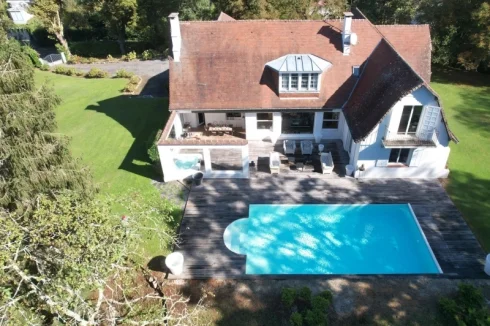Taxation of Savings and Investments in France in 2012
Tuesday 04 September 2012
We review the rates of taxation that are paid on the main forms of savings and investments in France for 2012.
As a general rule of thumb, all savings and investments in France are subject to social charges (prélèvements sociaux), as well as being liable to income tax or capital gains tax.
The tax regime has become tougher in recent years, with the level of the social charges in particular having risen considerably, and a number of tax concessions on certain products either being reduced or abolished.
With effect from 1st July 2012 the level of the social charges increased from 13.5% to 15.5%. Accordingly, you pay at the rate of 13.5% up to 30th June 2012, and at the rate of 15.5% for the remaining six months of the year.
Social charges are deducted at source on all savings and investment income from France.
In relation to income tax you either pay the following year after submission of your income tax return, or opt for a fixed rate with-holding tax, called the prélèvement forfaitaire libératoire (PFL). This really only makes sense for those with a marginal rate of tax of at least 30%.
Bank Savings Accounts
Given the current low level of central bank interest rates, bank savings accounts interest rates follow suit - around 1.5%, and all subject to income tax and social charges.
You will find offers from (mainly) internet based banks offering higher, promotional rates of interest, but they are normally time limited and subject to a range of other conditions. By way of example, one of the best offers of late has been with a subsidiary of Credit Agricole, called Tookam, which has offered 6% for three months for a sum of up to €20,000.
Those standard savings accounts offering the best interest rates are fixed term saving accounts called compte à terme. In such accounts your savings are guaranteed, as is the rate of interest, but early withdrawal will result in an interest penalty.
Clearly, the longer the period you are prepared to lock away your money, and the more you are prepared to put into the account, the higher the interest rate that is offered. You will need to be prepared to stash away a reasonable sum for at least a couple of years to secure anything more than 2.0% gross, athough it will vary as between the banks. A minimum deposit level may also apply.
The other key advantage of such accounts is that there are no fees payable.
Tax Free Bank Savings
There are a number of government regulated savings accounts which are both free of social charges and of income tax, as well as any fees.
These savings accounts are:
- Livret A (or 'Livret bleu' with Crédit mutuel)
- Livret de développement durable (LDD, ex-Codévi)
- Livret d’épargne populaire (LEP)
- Livret jeune
There are limitations on the amounts that can be invested in these accounts; the LEP is only open to zero or low income tax payers, and quite evidently the Livre jeune is restricted to young people.
The government have recently announced an increase in the maximum deposit levels of the Livret A and LDD.
The announcement means that the maximum deposit level for the Livret A increases from €15,300 to €19,125 per person (excluding interest) this month, while that of the LDD from €6,000 to €12,000.
A further increase in the level of the allowance for Livret A to €22,950 is planned for later this year.
The rates of interest on the accounts are set twice a year by the government. Livret A and LDD currently offer 2.25%, while the LEP offers a more generous 2.75%.
At these rates if you were to hold the new current maximum amounts in these three accounts the interest earned would be around €900 a year (€1,800 for a couple).
You can read more about these accounts in our Guide to Tax Free Savings Accounts in France.
Dividends
Dividends earned from French shares also benefit from favourable income tax treatment, as they receive an allowance of 40% on the gross sum received, as well as a general allowance of €1,525 (€3,050 per couple) after deduction of fees.
It is also possible to offset losses against gains for up to 10 years.
Although it is possible to opt for the fixed rate of income tax (PFL), this now rarely makes sense, except for the highest rate income tax payers. Otherwise, tax is assessed through your normal income tax return.
Assurance Vie
This widely popular form of investment also retains favourable tax status, despite losing some of its allure in recent years due to a tougher tax regime and a lower rate of return. Average annual returns of those policies where your capital is guaranteed (fonds en euros) have slipped from 4.1% in 2007 to 3.02% in 2011.
Although subject to the usual social charges, the interest earned is tax free if held for at least 8 years, up to a ceiling of €4,600 per person pa (double for a couple). As this allowance applies only to the capital gain, it does mean it is possible to make regular withdrawals free of income tax.
Withdrawals under 8 years are taxed at your applicable rate in the income tax system or, by option, a with-holding tax of 35% up to 4 years, 15% between 4 and 8 years, and 7.5% after 8 years (on gains in excess of the annual allowance)."This option may well be removed through the forthcoming Finance Act for 2013", says Mervyn Simms of French financial advisors Siddalls,"although we are waiting to see details in the draft Finance Bill, which is due to be published at the end of September”.
There are also inheritance tax advantages in assurance vie polices.
Thank you for showing an interest in our News section.
Our News section is no longer being published although our catalogue of articles remains in place.
If you found our News useful, please have a look at France Insider, our subscription based News service with in-depth analysis, or our authoritative Guides to France.
If you require advice and assistance with the purchase of French property and moving to France, then take a look at the France Insider Property Clinic.





